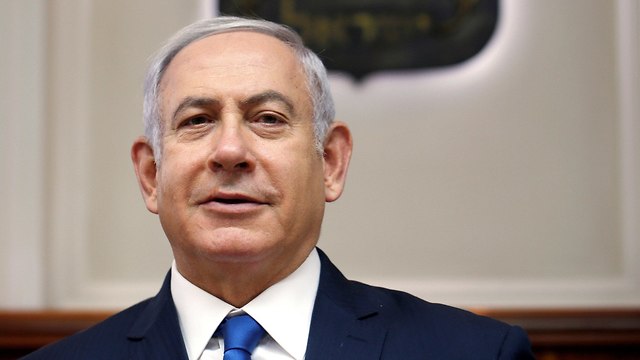
Netanyahu opts to answer questions via Instagram
Op-ed: Prime minister decides to allow general public to ask him questions through a new feature introduced by the social network; However, content is heavily curated and edited with only a handful of complimentary questions being answered, such as Iran's nuclear deal or Netanyahu's sleeping habits, emitting controversial topics.
"Ask me a question"—this is the title of a new feature that drove those who live their lives on Instagram wild, and was launched this week for the first time by the Prime Minister's digital media department.
Their enthusiasm for this indulgent format is as predictable as Netanyahu's, because which politician would not want to spare himself the hell known in the journalistic circles as the “follow-up question"—the same matryoshka doll that begins with a question such as "Are you a fan of Beitar Jerusalem?", leads to questions such as "What do you think of the racist chants heard among the team’s fans?", and concludes with an insightful query "So the Arabs do not flock to the stadiums?"
What kind of public official does not dream about being eternally exempt from the obligation to give detailed and elaborate responses to the electorate?
This warm shower of questions poured unobtrusively, aiming precisely for that lukewarm spot, one which neither boils nor freezes, from the shower faucet of prime minister's men and advisers, who will decide which questions to publish and which questions you will never hear about.
That is how this feature works—the respondent has full control over which questions to answer and to publish. For Netanyahu, this is a dream deal since it does not involve journalists, it gives him full control of the content, allows him to only talk about issues he wants to talk about, and most importantly, it makes him seem as cool as he always dreamed of being, when he was still dependent on a goodwill of the mainstream media’s editors.
Netanyahu does not feel obligated to answer difficult questions, especially when it comes to the Israeli media—hostile relations with which are well documented, but he still has the urge to provide answers.
He wants both—to feel that he can provide a solution to a conflict, and also decide what the conflict will be. For example, he almost never expresses himself on social issues, except statements on special budgets or five-year plans, but he ignites discussions on the Iranian nuclear issue, or any other security issue for that matter, at any opportunity.
In a different world, Netanyahu could have been a president of an American pro-Trump news company, but in our small country he has to do everything himself. Including pretending to be an independent media outlet that strives to be pluralistic, open, diverse and fresh.
Judging by the choice of questions and answers that have been published so far, Netanyahu's dream news cycle includes all the elements that have been missing from the Israeli media’s coverage of him and his family—slogans about settlements, promises on security topics, one or two remarks about his nutrition or sleeping habits and Yalla Beitar Yalla.
There’s not a word about his son’s education, restraining his wife, a long term agreement with the Palestinians, neglecting the country’s periphery, betrayal of the Druze and Bedouin communities, or simply a question about the high cost of living.
The generic appeal of Instagram’s “Ask me a question” feature is like a pretty good joke at the expense of the respondent. For instance, a Prime Minister who can not bear to answer journalists' questions.
The Prime Minister's strong fondness for social networks is understandable, photoshop software works great not only for teenage girls but for politicians as well since everybody wants to polish the reality.
However, Netanyahu, seems to be convinced that his pasta preferences will eliminate the need to talk about polarization and discrimination on a way to another two Knesset seats. His young friends, the cool kids behind a keyboard, whisper to him that they know what the young people like—it's probably not long, drawn out questions about issues that “suck.”
He listens to them and trusts them as they twitter, publish posts and drag him into fun Q&A games with the general public. There is no reason for him not to attend this party, the DJ plays the kind of music the prime minister likes.












